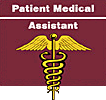 Return to the Home Page
Return to the Home Page
Children require freedom to grow and to learn, but they will not thrive on unlimited freedom. The aim of discipline is to set reasonable limits which protect children from harm and teach them what is safe and what is not. If children are to grow up into responsible, conscientious, and dependable adults, they must learn the social, moral, and ethical standards that are considered acceptable in our society. They must also learn to respect the rights and property of others.
Children brought up without discipline may become selfish, greedy, dishonest, unpopular, uncooperative and insecure. Undisciplined children constantly demand attention. They may be inconsiderate or disrespectful to others. Some are destructive, aggressive, and accident prone. A child allowed to disobey without punishment is unlikely to develop much respect for law as he grows older.
Although it is impossible to define rules for discipline that are appropriate for every situation, some principles are well established.
Children who are often in trouble usually suffer from too little affection, rather than too little punishment. The responsibility for starting the child in the right way belongs to the parents. Little feet start on life's journey from the home. Parents must serve as good examples for their children. Attitudes and behaviors of the children can be expected to be no better than those of the parents.
Children learn best from repetition, practice, and example; lecturing is less effective. The age at which punishment is appropriate depends on the intelligence and maturity of the child. Punishment, when required, should be immediate and inevitable. The penalty should be specified in advance and should be adhered to strictly. The form of punishment should be appropriate to the seriousness of the misbehavior and to the child's age. After a child has been punished, it is important to reassure the child that he or she is still loved and a valued member of the family and that the transgression has been forgiven.
Rules should be as few and clear as possible, but they should be strictly and consistently enforced. Rules must be appropriate to the age of the child. The child must understand that a specified punishment is automatically invoked for a specific unacceptable behavior. Threats that the parent does not intend to carry out should always be avoided.
There are many types of disciplinary methods. Rewards reinforce good behavior. Rewards may take the form of a smile, verbal praise, special attention, special activities, hugs, extra privileges, or material benefits. Positive reinforcement is more effective than punishment. Punishment is useful to stop inappropriate behavior. Punishment includes verbal disapproval, an unhappy look, ignoring harmless behavior, temporary isolation, temporary removal of a privilege, or spanking. Attempts to tease or shame children will cause them to feel inferior and helpless and should be avoided.
Many find that the "time-out technique" is often successful for discipline. When your child misbehaves, take him or her to a quiet, safe room, such as a bedroom. Tell your child that he or she must remain alone for a set period of time. Limit the time-out to one minute for each year of the child's age. (For example, a 3-year-old should sit out for no longer than 3 minutes.) Do not talk to the child during the time out. After each time-out, welcome your child back into the family circle. It is important to show your child that he or she has been forgiven. For a time-out to be effective, there must also be "time-in."
Make sure you regularly tell and show your child that s/he is loved.
| That's Incredible! | You deserve a hug! | Amazing effort! | Excellent! |
| Terrific! | I knew you had it in you! | Super job! | Remarkable! |
| Cool! | Far out! | Wow! | Exceptional! |
| Dynamite! | Take a bow! | Your help counts! | Good for you! |
| You're amazing! | I'm proud of you! | It couldn't be better! | Well done! |
CONTACT YOUR DOCTOR FOR ANY OF THE FOLLOWING:
1. Punishment is occuring too frequently.
2. You are losing control
of your child.
3. You are losing control of your own temper.
